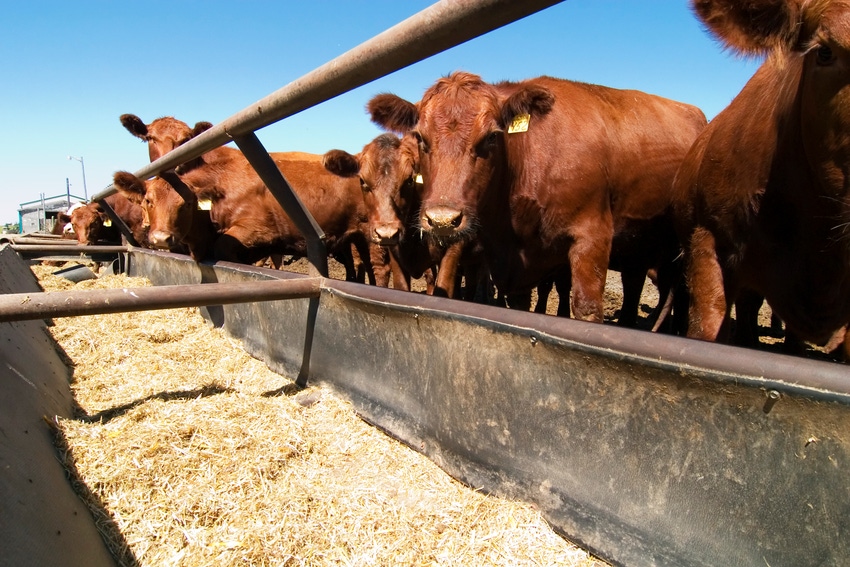Diet type may influence cattle behavior in confinement
Limited access to forage may cause cattle to display non-nutritive oral behaviors, which may also be "useful behavioral proxy" for rumen status.

In animal behavior research, stereotypies are repetitive behaviors that an animal may perform in an effort to relieve frustration or cope with a suboptimal environment, according to a review article published in Livestock Science by Emily Ridge and Courtney Daigle with the Texas A&M University department of animal science and Margaret Foster with the Texas A&M Medical Sciences Library.
They hypothesized that cattle may cope with differences between forage and grain-based diets with non-nutritive oral behaviors (NNOB), a form of oral stereotypies.
Ridge et al. suggested that diets fed to cattle in confinement often contain less roughage than the predominantly forage-based diets cattle consume while on pasture, and the changes in diet composition, presentation and time required to consume can "elicit physiological changes in the rumen and require cattle to spend less time engaged in oral behaviors (e.g., mastication of the cud, using the tongue to grasp and pull on grass)," which contribute to NNOB performance.
The researchers noted that allogrooming (grooming of herdmates) and self-grooming are also classified as NNOBs, but those behaviors have function and are not stereotypic in nature.
Ridge et al. conducted a systematic literature review to evaluate the current state of research regarding the relationship between diet and NNOB performance in cattle. They reported that searches of CAB Abstracts, AGRIS, Scopus and SPAC, performed prior to September 2018, resulted in 22 articles (25 studies) that analyzed the influence of dietary treatments on NNOB performance in both beef and dairy cattle housed in confinement.
According to Ridge et al., the literature found that increasing dietary roughage levels decreased NNOB performance, while limiting dietary roughage increased the behaviors. However, they said there was little conclusive evidence to suggest that ingredient type, particle size, total amount fed, mode of feeding or mineral addition influenced NNOB performance.
About the Author(s)
You May Also Like



